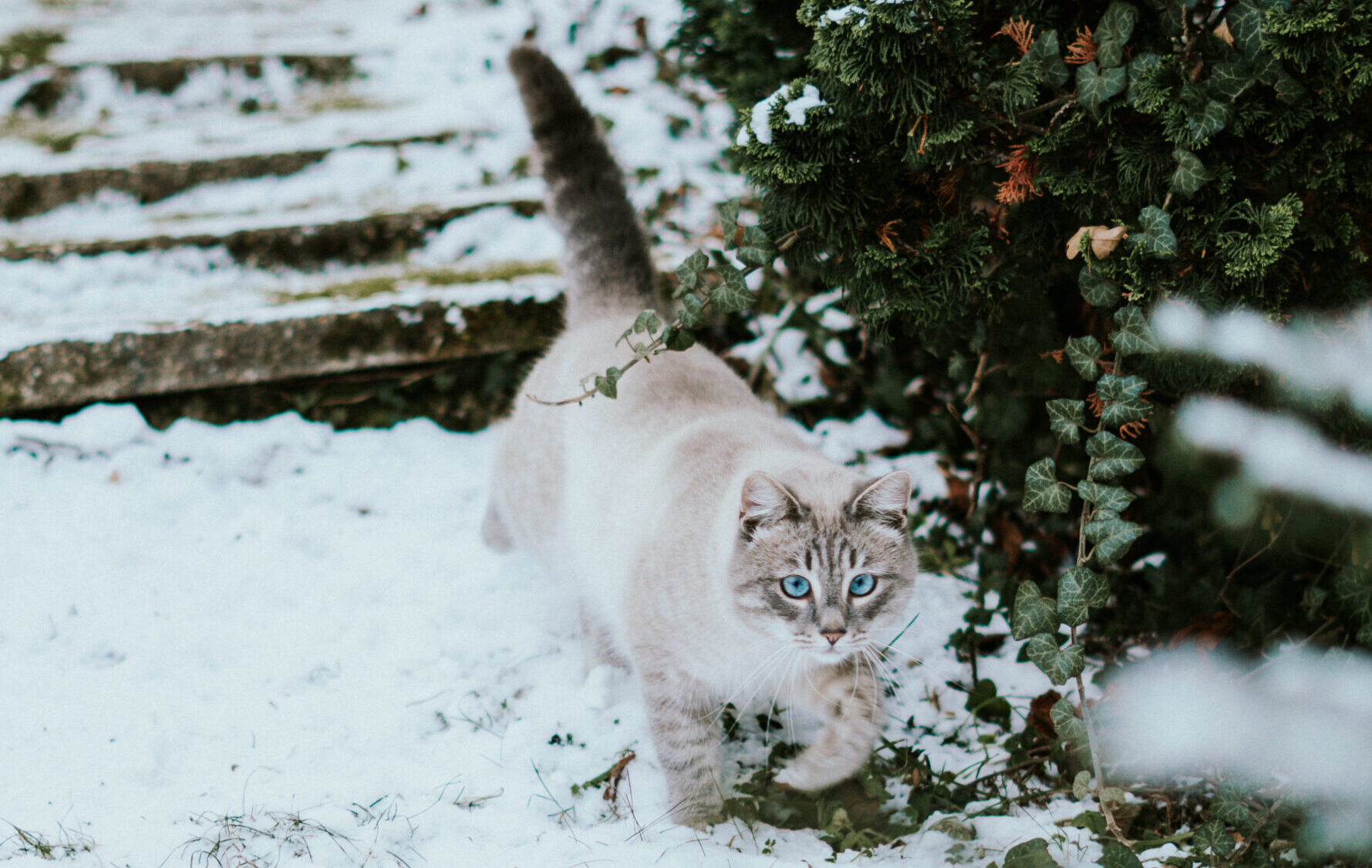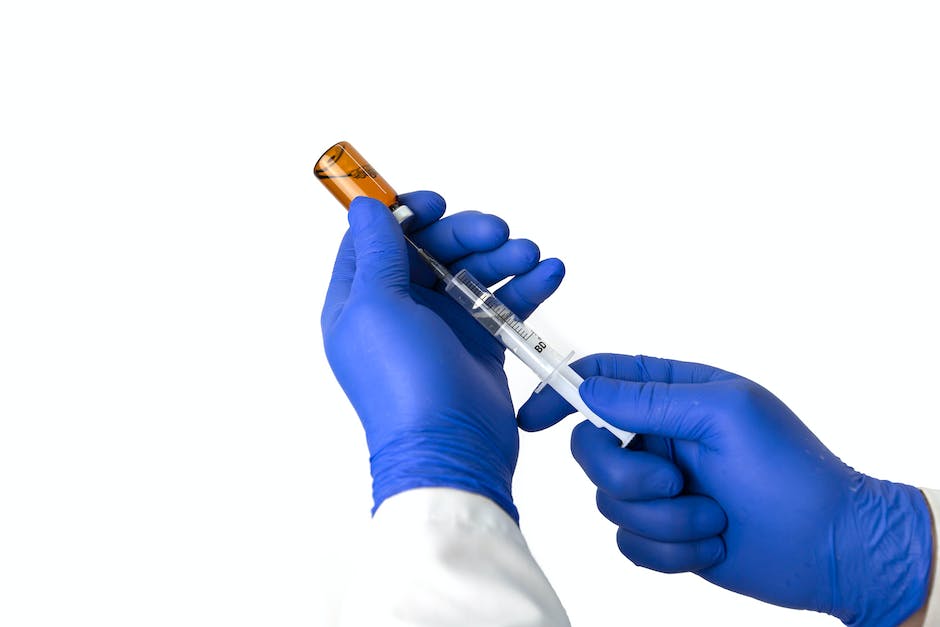Are you concerned that your cat isn’t getting enough nutrition? Helping a cat gain weight is possible with some dietary changes and a little patience. First, take your cat to the vet for a check-up. Once you have ruled out any medical conditions that may be causing weight loss, you can concentrate on adding calories to your cat’s diet. One way to do this is to feed your cat more often. Smaller, more frequent meals will help your cat slowly gain weight. You can also consider switching to a higher calorie food. kittens, senior cats, and indoor cats may all benefit from a diet designed to help them maintain a healthy weight. Work with your veterinarian to find the best food for your cat. In addition to diet changes, you can also help your cat gain weight by providing plenty of toys and stimulation. A bored cat is more likely to be underweight, so make sure your cat has plenty of things to do.
If your cat is too thin, there are a few things you can do to help them gain weight. First, take them to the vet to rule out any health problems that may be causing weight loss. Once you have a clean bill of health, you can work on increasing your cat’s caloric intake. This can be done by feeding them more frequently or by switching to a higher calorie food. You should also make sure that your cat has easy access to fresh water and that they are getting enough exercise.
How can I fatten up my cat?
If your cat is healthy but skinny, they may just need more food. Cats prefer to ‘graze’ or eat small meals throughout the day, so having food available all day long can make all the difference.
If you have an underweight pet, it’s important to make sure they’re getting enough calories. Feed them a food that is around 30% protein and 20% fat if they’re eating dry kibble, or 7% protein and 5% fat, or higher, if you’re feeding a wet food. Intersperse their diet with small amounts of high-calorie supplemental canned food or canned products made of 100% meat sources. This will help them get the calories they need to gain weight.
Why is my cat so skinny but eats all the time
If you notice your cat losing weight despite having an increased appetite, it may be due to hyperthyroidism. This is a condition where your cat’s thyroid gland has a benign tumor. If you think your cat may have this condition, please take them to the vet for an examination.
Cats can eat tuna, but it is not nutritionally balanced and should not be fed as a large part of your cat’s meal plan. Even giving canned tuna as a treat can lead to health issues, especially if it is given in large amounts or frequently.
Will milk help a cat gain weight?
If your cat is underweight or has trouble eating solid food, milk supplements or cat milk may help them gain weight. Supplement milk is cow’s milk with most of the lactose stripped out, and essential cat nutrients, like taurine, added in. This milk can help cats who need to put on weight or have health issues that make it hard to eat solids.
Good quality kitten food is an excellent choice for weight gain in healthy cats. And most cats enjoy eating kitten food. Royal Canin Feline Health nutrition dry cat food for young kittens is nutrient- and calorie-dense and tends to be highly palatable to most cats.
What cat food will make my cat gain weight?
We really love Blue Buffalo Wilderness for helping our cats gain weight. The slightly higher protein content in the other two options is great, but we personally feel that Blue Buffalo is the best choice.
Yes, cats can eat fully cooked eggs as a nutritional treat. Eggs are packed with nutrients, like amino acids, which are the building blocks to protein, and they’re also highly digestible. Scrambled, boiled, however you choose to prepare them is fine.
What are the symptoms of worms in cats
If your cat is vomiting, has diarrhea, or seems to be in general poor condition, they may have worms. Other symptoms include tarry feces, weight loss, and skin lesions. If you see any of these signs, take your cat to the vet to be diagnosed and treated.
If you feel along your cat’s spine, you should be able to feel the bones. However, if you feel any excessively knobbly bones or if it feels like there’s nothing on top of the bones, then your cat is underweight. If the spine is difficult to feel, this indicates that your cat is overweight.
Should I be able to feel my cat’s spine?
If you are able to feel your cat’s ribs, spine and hipbones quite easily but they shouldn’t stick out, this is a good indication that your cat is at a healthy weight. You should also be able to feel the base of your cat’s tail without any build-up of fat.
There are a few things to keep in mind when feeding your cat meat. First, cats are obligate carnivores, which means that they require animal protein to survive. Second, raw or spoiled meat can make your cat sick, so it’s important to cook meat thoroughly before feeding it to your cat. Finally, lean deli meats are a great way to give your cat the protein it needs without overfeeding it.
Can cats have peanut butter
Although cats may love the taste of peanut butter, it is important for cat parents to avoid giving it to their feline friends. Peanut butter provides no nutritional value and, more importantly, certain ingredients, like fat and added artificial sweeteners, can be harmful or even toxic to cats.
Cats are obligate carnivores, which means they can only get necessary nutrients from meat. But even though cheese is also high in protein, it can upset a cat’s delicate digestive system. The reason for this is that cats don’t tolerate dairy very well.
Can eggs help a cat gain weight?
Eggs are a good source of protein for cats, but they should not be the primary food source. It’s essential to know how much egg is appropriate for a cat. A single egg is a relatively low-calorie, high-protein snack for a human, but the high fat content of eggs can cause your cat to gain weight if the correct portions are not adhered to.
Your kitty might be sensitive to grain. If your feline friend isn’t accustomed to eating grains, it’s best if you don’t experiment with rice. Rice may cause vomiting and constipation in sensitive cats. Rice can cause obesity—Since rice is rich in carbs, your cat can gain weight quickly, especially if they’re neutered.
Will Rice help cats gain weight
If you are concerned that your cat is eating too much rice, please consult your veterinarian. Rice is high in carbohydrates and can leads to weight gain in cats. If your cat has eaten uncooked rice, they may experience bloating, vomiting, and diarrhea.
If you have an underweight cat, don’t worry – there are things you can do to help them gain weight. One way to encourage weight gain is to increase the size of your cat’s diet. You can achieve this by adding extra food to their regular meals or feeding them a high-protein cat kibble. You should also make sure they have plenty of opportunities to exercise to balance out this new diet. With a little care and attention, your underweight cat will soon be back to a healthy weight.
Which wet cat food has the highest protein
Smalls human-grade fresh cat food is packed with high-quality protein and is available in three delicious flavors (chicken, turkey, or beef). Free of additives or mystery meats, Smalls is our top pick for the best high-protein cat food overall.
According to the American Kennel Club, nonfat plain yogurt is usually safe and healthy for cats and dogs to eat as a fun snack. However, it is important to check the nutrition label first to make sure it doesn’t contain a dangerous ingredient, like xylitol. For even more power-packed benefits, consider adding a daily probiotic to their regimen.
How long does it take for a cat to gain weight
The entire process of gaining weight can take a few months, and it is important to gain weight slowly and steadily. During this process, it is important to eat healthy foods and exercise regularly to ensure that the weight gain is healthy and sustainable.
The American Veterinary Medical Association does not recommend feeding raw eggs to cats. Cats can contract salmonella or E coli from consuming raw eggs, which can cause vomiting, diarrhea, and lethargy.
Can cats eat olive oil
Yes, cats can have olive oil, but it is not necessarily good for them. Too much fat, including olive oil, can cause diarrhea and vomiting in cats.
Fish: While you don’t want your kitty eating from the aquarium, feeding him oily fish such as tuna or mackerel can help his eyesight, joints and brain.
Meat: Poultry, beef and other meat is a natural option for your little carnivore.
Cheese: Bananas: Berries: Melon: Carrots: Rice:
How do you deworm a cat naturally
Pumpkin seeds are an effective deworming agent because they contain an amino acid called cucurbitacin. This amino acid paralyzes the worms making them easily eliminated from the intestine. Pumpkin seeds can be fed whole as a treat or ground into a fine powder and added to your pet’s food.
Indoor cats can get infected with worms through contact with infected rodents, insects, and other household pests. These animals can harbor worm eggs, which are then passed on to your cat when he or she consumes them. Mice and house flies are two of the many creatures that can carry roundworm eggs. In order to prevent your cat from becoming infected, it is important to limit their exposure to potential sources of infection and to clean up any areas in your home where these animals may have been.
Final Words
The best way to help a cat gain weight is to feed them a high-quality diet that is rich in calories and nutrients. You should also make sure that they have plenty of fresh water to drink. If your cat is very thin, you may want to consider feeding them smaller meals more often throughout the day.
There are a number of things you can do to help your cat gain weight. First, take them to the vet to rule out any medical conditions that may be causing weight loss. Once you have ruled out any medical conditions, you can help your cat gain weight by increasing their food intake and providing them with high-calorie foods. You should also make sure they have access to fresh water at all times.





